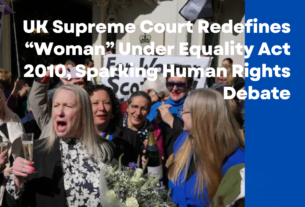Iraq’s prison system is grappling with severe overcrowding, operating at more than double its intended capacity, as a newly enacted general amnesty law leads to the release of thousands of inmates. Justice Minister Khaled Shwani reported that the country’s 31 prisons currently house approximately 65,000 detainees, despite being designed to accommodate only half that number. This situation persists even after reforms have reduced overcrowding from 300% to 200% over the past two years, with a goal to bring it down to 100% by next year in line with international standards.
The general amnesty law, passed in January and effective since mid-February, has already led to the release of over 2,500 prisoners. Proposed by Sunni lawmakers, the law was a condition for joining Iraq’s ruling State Administration Coalition. It includes amendments to the definition of affiliation with terrorist groups—a provision Sunnis argue has led to the disproportionate imprisonment of their community since 2003. While Shwani said a committee is reviewing cases to identify eligible inmates, critics, including the Iraqi Observatory for Human Rights, warn the law could enable the release of those guilty of corruption, embezzlement, or war crimes.
To ease overcrowding, Iraq is constructing four new prisons, opening two others, and expanding six existing sites. Three prisons have been closed in recent years due to poor conditions. Shwani stated that executions have been halted pending case reviews under the amnesty, and that violations against inmates are being investigated.
The amnesty law applies to all convicted Iraqis and those accused of crimes still under investigation or on trial. It also allows for the review of death sentences. Judicial sources and lawmakers confirmed that those convicted of attacks against American forces in Iraq could benefit from the law. Sunni blocs in the Iraqi parliament have been pushing for the law, as many of those in prison on such charges … in Al Qaeda and Islamic State and … . Sunni lawmakers estimate that at … .
However, the law has sparked controversy. Critics argue that it could lead to the release of individuals convicted of serious crimes, including war crimes and corruption. The Iraqi Observatory for Human Rights expressed deep concerns over the potential legal and security consequences of the law.
As Iraq continues to navigate the complexities of prison reform and justice, the implementation of the amnesty law remains a contentious issue, balancing the need for humanitarian relief with concerns over accountability and security.




